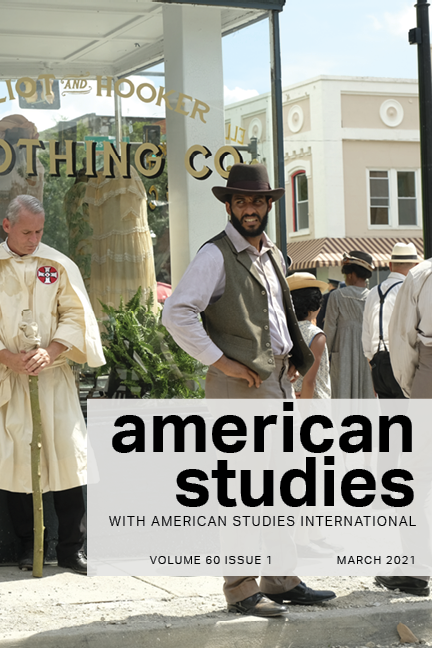Аннотация
Frederick Douglass was a prominent figure in the Communist Party USA’s imagination in the 1930s and 1940s. Douglass frequently appears in Communist rhetoric in political speeches, pamphlets, newspapers, and novels. This paper examines how the Communist Party invoked the mythology of Douglass, at times beneficially and at others detrimentally, from the Popular Front to the Second World War. Douglass was a figure that allowed black Communists to conceptualize their identity as black, American, and Communist simultaneously. However, inconsistencies in Communist rhetoric contributed to the disenchantment of many black intellectuals with the Communist Party during the Second World War, such as Ralph Ellison, whose Invisible Man includes a scene in which the Douglass myth plays a pivotal role in the narrator’s departure from the Party.
All items © Mid-America American Studies Association
Authors: If you prefer to remove your text(s) from this database please contact the editor.

